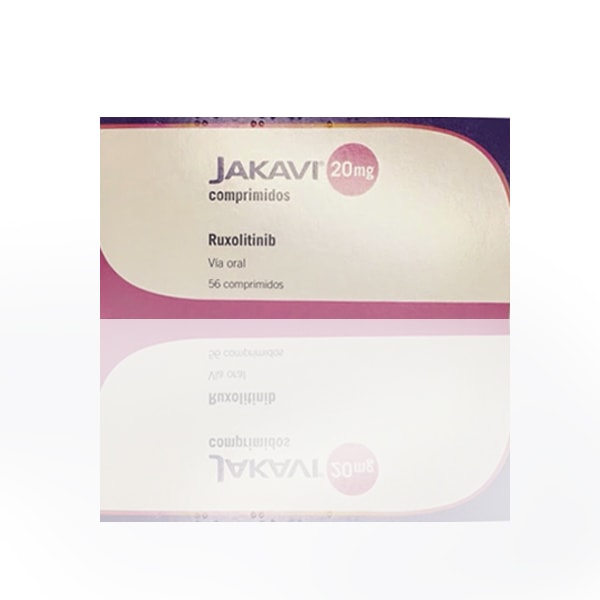
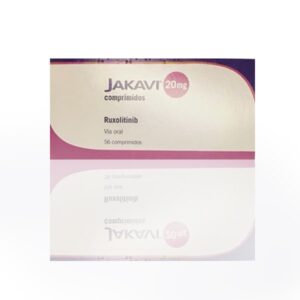
Buy Jakavi : Ruxolitinib 20 Mg Tablets 56’S Online
$1,381.07
Brand Name : Jakavi
Composition : Ruxolitinib
Manufactured by : Novartis India Ltd.
Strength : 20 mg
Form : Tablets
Packing : Pack of 56 Tablets
Prescription Required *
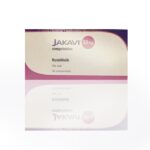
Buy Jakavi : Ruxolitinib 20 Mg Tablets 56’S Online
$1,381.07
- Description
- Reviews (0)
Description
1. Introduction: Jakavi, also known by its generic name Ruxolitinib, is a prescription medication categorized as a Janus kinase (JAK) inhibitor. It is used for the treatment of certain blood disorders, specifically myelofibrosis, polycythemia vera, and acute graft-versus-host disease (GVHD) in patients who have undergone allogeneic hematopoietic stem cell transplantation.
2. Mechanism of Action: Ruxolitinib functions as a JAK1 and JAK2 inhibitor, disrupting the signaling pathways involved in the growth and survival of blood cells. By inhibiting these pathways, Jakavi helps to regulate the abnormal production of blood cells and alleviate symptoms associated with myelofibrosis and other related conditions.
3. Indications: Jakavi (Ruxolitinib) is indicated for the treatment of:
- Intermediate or high-risk myelofibrosis, including primary myelofibrosis, post-polycythemia vera myelofibrosis, and post-essential thrombocythemia myelofibrosis.
- Polycythemia vera in patients who are resistant to or intolerant of hydroxyurea.
- Acute graft-versus-host disease (GVHD) in adult and pediatric patients 12 years and older who have undergone allogeneic hematopoietic stem cell transplantation.
4. Dosage and Administration: The dosage of Jakavi is determined by the healthcare provider based on factors such as the patient’s weight, overall health, and the specific condition being treated. It is typically administered orally in tablet form, and the treatment plan may involve adjustments based on the individual’s response.
5. Monitoring and Side Effects: Patients taking Jakavi may undergo regular monitoring, including blood tests, to assess the medication’s effectiveness and detect potential side effects. Common side effects may include anemia, thrombocytopenia, increased cholesterol levels, and respiratory tract infections. It is crucial to promptly report any unusual or severe side effects to the healthcare provider.
6. Precautions: Jakavi should be used with caution in patients with liver problems, and liver function should be monitored regularly during treatment. The medication may also increase the risk of certain infections, and healthcare providers may advise vaccinations or other preventive measures.
7. Interactions: Ruxolitinib may interact with other medications, and patients should inform their healthcare provider about all medications, supplements, and herbal products they are taking to avoid potential interactions.
8. Pregnancy and Breastfeeding: Jakavi is not recommended during pregnancy as it may harm the developing fetus. Adequate contraception measures are advised for individuals of childbearing potential. Breastfeeding is not recommended during treatment with Jakavi.
9. Duration of Treatment: The duration of Jakavi treatment varies depending on the specific blood disorder being treated and the individual patient’s response. Healthcare providers will determine the appropriate duration and may adjust the treatment plan based on ongoing assessments.
10. Conclusion: Jakavi (Ruxolitinib) is a targeted therapy offering significant relief for patients with certain blood disorders, particularly myelofibrosis and polycythemia vera. Its mechanism of action in inhibiting JAK1 and JAK2 pathways provides a novel approach to managing these conditions. Patients prescribed Jakavi should closely follow their healthcare provider’s instructions, report any concerns promptly, and engage in open communication to optimize the benefits of treatment while managing potential side effects.
Be the first to review “Buy Jakavi : Ruxolitinib 20 Mg Tablets 56’S Online” Cancel reply
Related Products
Buy Abretone : Abiraterone 250 Mg Tablets 120'S Online
Total Sales: 0
SKU: 515693
Buy Alimta : Pemetrexed 100 Mg Injection Online
Total Sales: 0
SKU: 541439
Buy Biobin : Cytarabine 1000 Mg Injection Online
Total Sales: 0
SKU: 999962
Buy Cantret : Altretamine 50 Mg Capsules Online
Total Sales: 0
SKU: 417978
Buy Casodex : Bicalutamide 50mg Tablets Online
Total Sales: 0
SKU: 626446



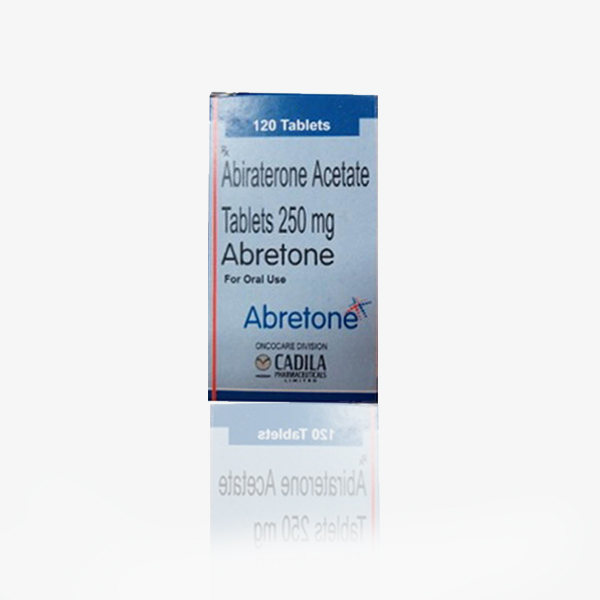
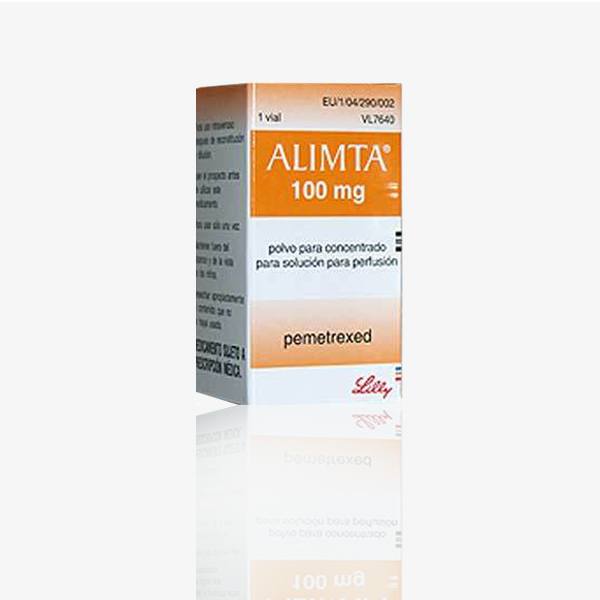


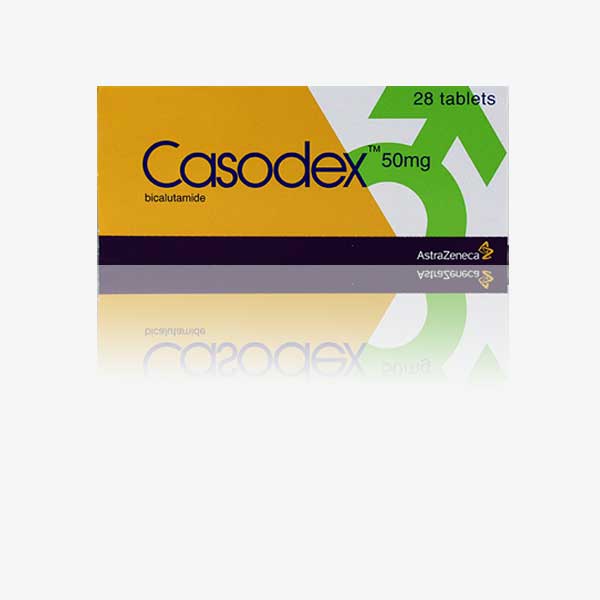
Reviews
There are no reviews yet.